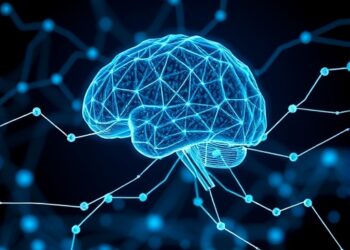A University of Michigan study has shown that traumatic experiences during childhood may get “under the skin” later in life, impairing the muscle function of people as they age.
A University of Michigan study has shown that traumatic experiences during childhood may get “under the skin” later in life, impairing the muscle function of people as they age.
The study examined the function of skeletal muscle of older adults paired with surveys of adverse events they had experienced in childhood. It found that people who experienced greater childhood adversity, reporting one or more adverse events, had poorer muscle metabolism later in life. The research, led by University of Michigan Institute for Social Research scientist Kate Duchowny, is published in Science Advances.
Duchowny and her co-authors used muscle tissue samples from people participating in the Study of Muscle, Mobility and Aging, or SOMMA. The study includes 879 participants over age 70 who donated muscle and fat samples as well as other biospecimens. The participants also were given a variety of questionnaires and physical and cognitive assessments, among other tests.
The researchers examined muscle biopsies to determine two key features of muscular function: the production of adenosine triphosphate, or ATP, and another measure called oxidative phosphorylation, a process that helps produce ATP. Produced by organelles within cells called mitochondria, ATP provides the chemical energy to fuel cellular function.
The researchers also used data from questionnaires that included a set of questions such as: Did a close family member use drugs or alcohol in a way that caused you to worry? Did an adult or parent in your household insult you or put you down? Were you physically abused by a parent or adult in your household? Did you feel loved, important or special in your family? Were either of your parents absent for a portion of your life?
Duchowny found that about 45% of the sample reported experiencing one or more adverse childhood events, and that both men and women who reported adverse childhood events had poorer ATP max production—that is, they weren’t producing as much ATP as people who experienced fewer or no adverse events in childhood.
“What these results suggest is that these early formative childhood experiences have the ability to get under the skin and influence skeletal muscle mitochondria, which is important because mitochondrial function is related to a host of aging-related outcomes,” Duchowny said. “If you have compromised mitochondrial function, that doesn’t bode well for a range of health outcomes, including everything from chronic conditions to physical function and disability limitations.”
Study co-author Anthony Molina, professor of medicine at the University of California San Diego, provided expertise in muscle bioenergetics. He and the team looked at images of participants’ muscles taken during exercise and during rest inside an MRI machine. Using a technique called 31 PMR spectroscopy, SOMMA researchers were able to determine the rate of ATP synthesis by looking at how fast the muscle was able to synthesize ATP after it was depleted by exercise.
In addition, SOMMA researchers looked at the muscle biopsies of participants. The researchers teased apart the fiber bundles that compose muscle, and examined them using high-resolution mitochondrial respirometry. This technique allowed the researchers to look at the oxygen consumption rate in the muscle fiber bundle and generate a precise readout of muscle mitochondrial function.
“You can think about oxygen consumption rate as a way to measure the flow of electrons that’s going through the electron transport train, and it’s these electrons that generate the membrane potential that drives the synthesis of ATP,” Molina said. “It’s a really precise way of assessing mitochondrial bioenergetic capacity.”
Previous studies have shown that these measures are closely related to the physical abilities of older adults, Molinda says.
The researchers say the effects of childhood adverse events remained significant even after they controlled for other factors that could potentially impact muscle function such as age, gender, educational attainment, parental education, body mass index, number of depressive symptoms, smoking status and physical activity.
“All of my previous studies have been focused on contemporaneous measures: mitochondria and physical function, mitochondria and cognitive function,” Molina said. “These studies have shown that these measures are strongly related to our strength, fitness and numerous conditions that impact physical ability.
“I’ve also shown that these measures are related to cognitive ability and dementia. But here’s the first time we’re looking backwards, at what kinds of things that could lead to those differences in mitochondrial function that we know can drive differences in healthy aging outcomes among older adults.”
Study: Childhood adverse life events and skeletal muscle mitochondrial function
Journal
Science Advances




